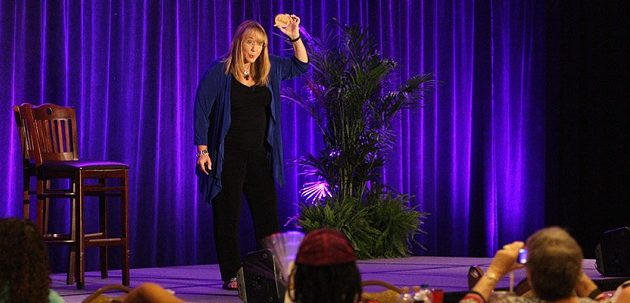As promised, I’m back with the rest of my essential leadership traits. Last time, we talked about Courage, Empathy, Effective Communication, Emotional Intelligence, Personal Responsibility and Synergy.
Now it’s time for the remaining seven leadership traits I have found to be critical to leadership success—at work, at home, in your community…anywhere you’re leading one or more people.
Let’s get right to it:
7. Blind Spot Awareness
Even the most courageous, conscious leaders have blind spots. They’re the things we don’t naturally pick up on; the things we tend to look past. Often, they can be right in front of our faces and we still don’t see them.
The very best leaders ask themselves what they’ve been missing, and how that’s been negatively affecting their leadership. They take steps to identify those blind spots and bring them to awareness. Then, they’re no longer blind in those areas.
One of the best ways to learn to recognize your own blind spots is to ask for feedback. Feedback is the breakfast of champions. It is historical data. Once you get the feedback, you can feedforward, which means asking yourself What am I going to do differently in the future?
Making course corrections without invalidating yourself is critical.
8. Trust and Cooperation
In order to be effective leaders, we must be willing to let go of some control. That means we’ve got to learn to trust others. When we do, that leads to cooperation, a valuable trait in any leader.
Leaders who trust themselves and others are much closer to creating a win/win world that those who don’t. Even if that leader has been burned, betrayed, let down…they can still learn to trust. They can tie up their camel and trust in God, The Universe, Great Spirit or whatever higher power they recognize.
Trust is a choice, and the most cooperative leaders have chosen it.
9. Integrity
Integrity means holding your shape, no matter how many directions you’re being pulled in. It means staying true to who you are, even if other people and forces are trying to knock you off center.
Signs of integrity in leaders are honesty, transparency and promise-keeping. A leader’s word is their bond.
If you discover you are unable to keep an agreement, renegotiate to keep trust alive.
10. Respect
Conscious, courageous leaders have respect for themselves and others. Instead of creating followers, they create more leaders by acting as examples of what leadership looks like.
Great leaders build respect by taking people where they wouldn’t go on their own. Maybe those people are afraid, but when their leader takes them by the hand, and guides and encourages them, they realize that’s where they should be.
When a leader is filled with respect for others, he or she sees the value, innocence and magnificence in every person they encounter. And they work to reveal that beauty, so others can feel equipped to move forward in spite of fear.
11. Boundaries and Accountability
A leader who recognizes boundaries has the courage to say NO to those things that will not add value to win/win situations. Their self-respect and respect for others fuel those decisions.
Additionally, they exercise accountability by remaining in an active feedback loop, where they take responsibility for their own beliefs, thoughts, actions and words. They are open to criticism and advice, acknowledging that it is the breakfast of champions. They remain accessible to others, even though they might not like with others have to say.
12. Inspiration
Conscious leaders say and do things that cause others to dream more, learn more, do more and become more. They empower others to create, and to go out into the world and spread their positive messages and make differences.
Ask any courageous leader, and they’ll tell you there’s no better feeling than seeing the influence they’ve had on others to create their own legacies.
13. Creativity and Innovation
When a leader allows his or her mind to open and new thoughts and concepts to shape their influence, then they’re leading with innovation and creativity. They don’t have to come up with all the ideas on their own; they can also inspire others to contribute and to create something that benefits everyone involved. By allowing others to innovate, they are inspiring positive change.
This, too, involves letting go and trusting others. Change and creativity are often group efforts.
Essential Leadership Traits: A Final Word
Establishing your own leadership style will depend on the legacy you want to build, the win/win situations you want to create, and the difference you want to make in the world.
You can look to great leaders who have gone before you, as well as to those who are making their own differences right now. Take note of the impact they have…the practices they use to change lives for the better.
And from all that, use your own mission, vision, values and purpose to shape your leadership and its legacy.
I trust that my Essential Leadership Traits (both here and in the first installment) have helped you to choose your own courageous leadership style and direction.
After all that conscious leadership development work, I think you deserve some freebies! Simply head over to the Essence of Being Freebies Page to claim yours now.





